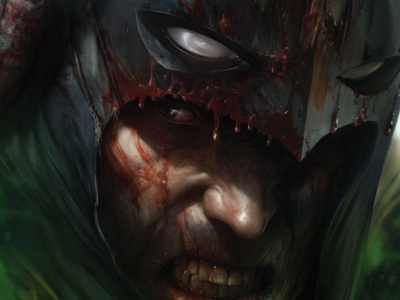Ilan Strasser of Fat Moose Comics and Games in Whippany, New Jersey saw the comment by ICv2 founder Milton Griepp on comic collectability (see 'World According to Griepp on Comic Collectability') and had this to say.
Milton Griepp was absolutely right to point out that retailing success depends on adapting to a wide variety of customer needs and catering to the buying choices those customers represent. It is imperative that all comics retailers get to know their customers as best they can so that they can regularly provide thier customers with what they want. As a bonus, being in touch with your customers taste and preferences also helps the retailer to properly recommend other items that may not have been familiar to those customers; in essence, it gives us the power to sell the customer an item he didn't even know he wanted.
While this is all well and good, it still doesn't speak to Marvel not overprinting at least a minimal amount of extra books to cover shortages and damages. My Diamond order for Nov 20th came without ANY of the 28 issues I had ordered of the newest issue of Scion. If Scion had been a Marvel book, it is more than likely I would not have been able to receive replacement copies. It is possible that many of my customers would have dropped the title once the continuity was broken for them. And, for those who might have hunted it down elsewhere, there is still the unspoken anger or disappointment they might feel towards my store (or me!!) because they felt that I had let them down. Marvel has to at least have enough corporate responsibility to make sure they completely satisy ALL initial orders. I'd like to thank Milton for adding his valuable insight to this discussion -- his many years of valuable expertise and supreme professionalism have been a boon to the industry. And, speaking of distributors in general...
Considering that Diamond operates with well-defined economies of scale as the major publisher distributor for our industry -- would it be possible for Diamond to survive if the distribution side of things opened up and Diamond's exclusivity contracts ended? For example, if Diamond lost an aggregate 25% share to new distributors, would it be able to continue to operate financially? I think that's an interesting question because of where the industry has gone in this respect -- a virtual monopoly. If anyone has ideas or opinions to offer, I for one would be interested in hearing them.







